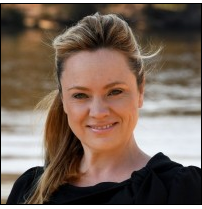Remember when children were seen and not heard? This medieval proverb applied to young women until it stuck to children, designed to silence them or admonish them for ‘making a scene’. It’s interesting then, that 500 years later, children are still struggling to get their voices heard, or their rights acknowledged. While we might not say that phrase much anymore, the action is very much still alive.
Today, November 20, marks World Children’s Day and the 2023 theme is ‘For every child, every right’. Around the world, communities are working to raise the voices of children, calling for adults to listen to children on major issues like climate change, mental health and education. The recent atrocities in Israel and Gaza, that has resulted in more than 6000 Palestinian and Israeli child deaths highlights the very critical need to value the rights of children, particularly the United Nations Conventions on the Rights of a Child number six, ‘You have the right to life’.
In Western Australian, children make up 25 per cent of our population. What children think and feel about the systems that are supposed to assist them; education, health, justice, poverty, child support and child protection is very rarely asked. This is having a detrimental impact on children and their wellbeing.
One in four children experience child sexual abuse before the age of 18, one in six children live below the poverty line, one in four children are obese, 20 per cent of children are not school ready, suicide is the leading cause of death of young people aged 15-24 and the 2021 ABS found 28,948 children were homeless, 17,646 of these children were under the age of 12.
Aboriginal children make up 40 per cent of the Aboriginal population, yet educational, health, housing and justice outcomes are far worse than their non-indigenous peers.
This is not to say children are never asked. The WA Commissioner for Children and Young People run regular ‘speaking out’ surveys of children and young people. State Parliament holds Youth Parliament, the Department of Education hosts a WA Student Council, some Ministers have youth advisors, and many (but not all) local government councils hold youth councils.
This is important work, but the concept of children’s rights into our systems is not adopted across the board and mainly focusses on children aged 12 and older. Children aged between 5 and 12 years old very rarely have an avenue for their voices to be heard.
The Valuing Children Initiative, in partnership with the University of Western Australia, Edith Cowan and Curtin Universities, recently released The Exploring Australian Adults’ Attitudes Towards Children for a Better Future 2023.
The survey found that only 67 percent of adults thought the opinions of children had the same value of adults.
Only 48 per cent believed Australian children have a fair and equal opportunity to flourish and 63 per cent said a child’s word is less likely to be believed than that of an adult.
When it comes to the sticky question of whether children should be seen and not heard, that figure rose from 16.7 per cent in 2016 to 27.3 per cent in 2023.
Australian adults believe governments give ‘too little’ consideration to children when making decisions, while 75 per cent of adults agreed the best interests of children should be considered in all decision making.
The survey also found 77 per cent of adults support the appointment of a Federal Children’s Minister.
The Valuing Children Initiative has long called for a dedicated Minister for Children with a dedicated children’s budget and a Child Wellbeing statement. Only the Victorian Government has appointed a Children’s Minister and only just recently.
One mechanism to consider children is a Child and Youth Impact Assessment Tool which could be adopted by every cabinet, council meeting and board room across the country, where every decision and legislation considers the impact on children and young people, similar to an environmental impact assessment.
We as adults, who create and manage systems, must honour children’s rights and voices. We must not wait until children become adults, but now while they are children.
Children are fun and playful, curious and think very differently to adults. Let’s harness that creativity. Who knows, we might even learn something?
When it comes to issues like climate change, mental health systems, child protection, social media and universal access to quality education, children have a lot to say – we must listen.
Children’s rights are human rights. Making space for children’s rights ensures that we construct their world ‘with them’, not just ‘to them’. And this will make a better world for everyone.


